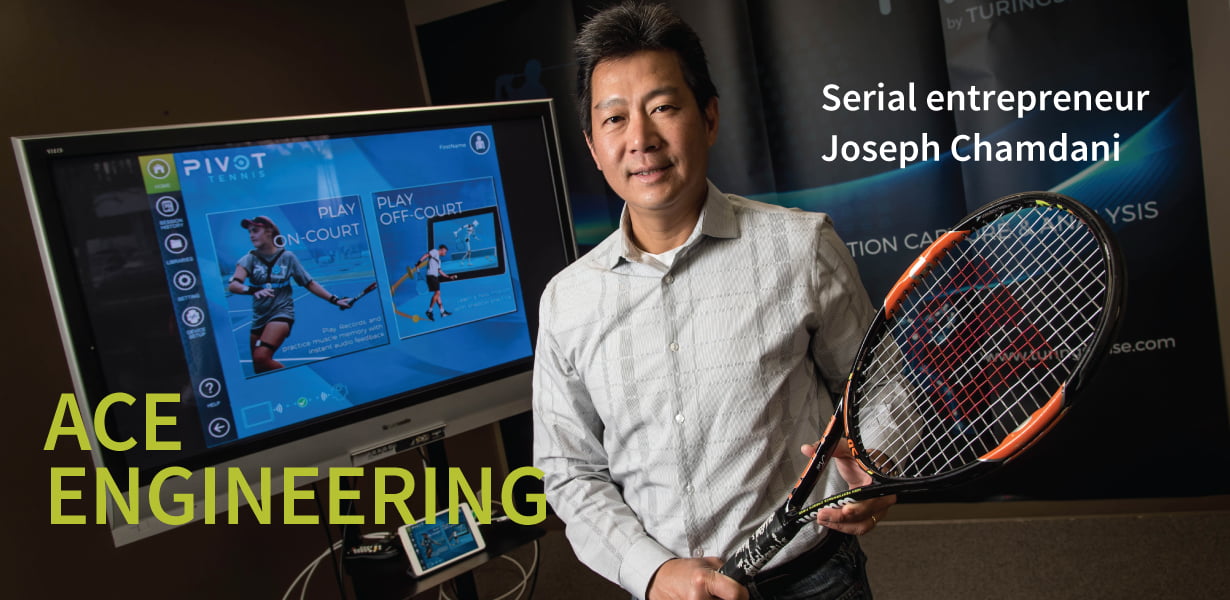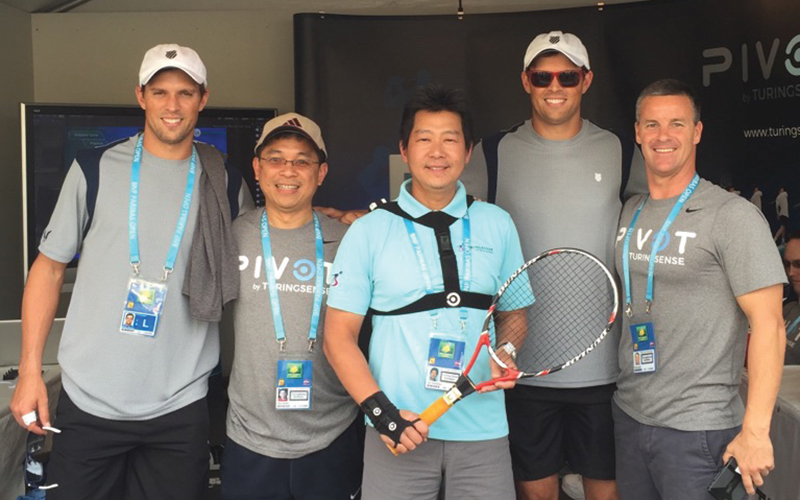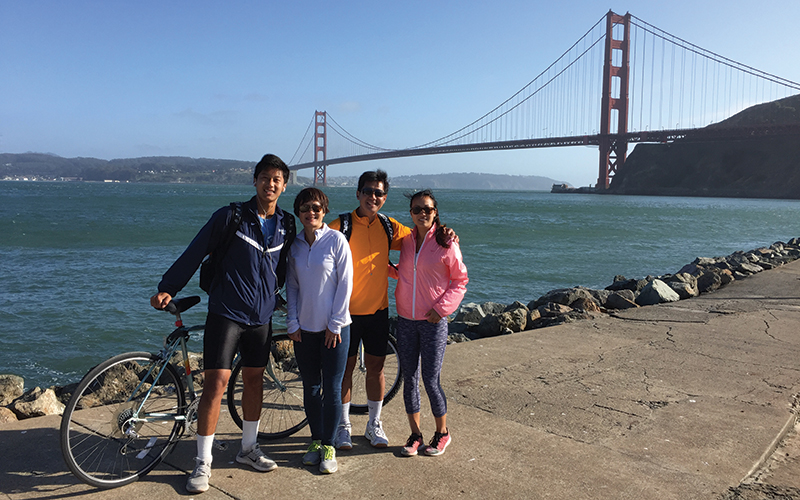Ace Engineering

Serial entrepreneur Joseph Chamdani draws from his WashU education — in the classroom and on the tennis court — to drive TuringSense, his latest Silicon Valley startup.
Joe Chamdani’s path to Silicon Valley by way of Washington University in St. Louis traces back to a life-changing encounter as a schoolboy in his hometown of Jakarta, Indonesia.
A well-to-do friend invited him over to demonstrate the capabilities of a new Commodore 64 desktop computer. Chamdani was already fascinated with science and mathematics and aspired to become an aeronautical engineer. But the moment he saw the power of what that little machine could do, he put aside his model airplanes and became determined to learn all he could about computer engineering.
“I found computer engineering amazing, and I decided to go to the United States to learn about this technology and discover where innovation happens.”
— Joseph Chamdani
Today at age 52, Chamdani is CEO of TuringSense Inc., his third in a string of successful high-tech startups. The Santa Clara, Calif.-based enterprise combines his computer science and engineering expertise with his passion for sports. With $5.5 million in angel funding and venture capital raised in the past two years, TuringSense is developing a digital 3-D platform that uses wearable sensors to generate real-time, full-body motion capture and analysis. Its first consumer product, PIVOT, is rolling out through a trial program this spring. It will focus on tennis instruction and biomechanical evaluation, as well as athlete injury prevention and rehabilitation.
Later this year, the company plans to start testing its technology with professional soccer clients in the English Premier League. Future applications could address other sports as well as augmented reality and gaming, dance, health care, workplace safety and more.
As an immigrant student in the early 1980s, Chamdani initially attended Texas A&M University. But training in software engineering was then still in its early stages, and no computer science major was offered at the College Station, Texas, campus. After a couple of semesters, Chamdani found one in the School of Engineering & Applied Science at Washington University in St. Louis and transferred there.

“I learned about transistors, logic design, digital algebra — all the foundations of how computers work,” Chamdani recalls. “It was the heyday of programming languages and early operating systems. One class combined programming and robotics, and I used six motors in a robot to pick up an object and move it. I thought, ‘Wow, my program can come alive, and I can use it to really do things.’”
Chamdani earned bachelor’s degrees in electrical engineering and computer science in 1986. He then went on to Georgia Tech, where he earned a master’s and then a doctorate in electrical engineering.
That led to a career in the San Francisco Bay area. Chamdani spent five and a half years at Sun Microsystems, where he became chief architect of microprocessors and pioneered many technology enhancements now used in server systems, data centers and cloud computing. He then co-founded Sanera Systems, a storage area networking startup acquired by McData in 2003, followed by Kickfire, a database analytics startup bought by Teradata in 2010. Along the way he became the holder of 51 U.S. patents, with another 36 patents pending.
Those experiences helped him and his co-founders to launch TuringSense in October 2014.
“This country offers the best system in the world for education, investment and opportunities to grow. Immigrant or not, the dream is real.”
— Joseph Chamdani
This time Chamdani is drawing from another component of his WashU education: collegiate tennis. He played for the Bears in Division III competition, solidifying a lifelong love of the sport and learning important lessons in the process.
“Training was intense, and the bonding we experienced is applicable in the real world in any company or startup,” Chamdani says. “You learn to help team members work together to achieve a goal, how to fight and never give up, how to solve problems on your own feet and compete, and how to practice time management.”
Chamdani’s own children have taken that to heart. He and his wife, Setiawati, who earned a bachelor’s in electrical engineering from WashU in 1986, have a daughter, Mariska, who plays tennis for Brown University and will graduate in May with a degree in business and entrepreneurship. Their son, Adrian, left Duke University tennis to explore a startup opportunity but is now returning to college with a tennis scholarship from the University of Oklahoma.
Whatever one’s educational or career interests, Chamdani encourages perseverance and passion. He recalls how he had to drop his first class in digital logic because he became so confused. But he went back and found another class to complete first before retaking the one he had dropped. The second time around he got the hang of it.
“Find a subject you love,” he says. “Be determined to learn, and don’t be discouraged if you discover it is hard or you are not getting good grades. It can take time to find your groove. It’s a luxury to be at a prestigious college like WashU with so many good students and faculty around you. Develop connections with friends who share your passions and cultivate opportunity.”
Amid today’s turbulent political climate and policy debates, Chamdani maintains a hopeful outlook as a U.S. citizen who first arrived from a developing country as an immigrant seeking an education and a better life.
“I live the dream of America,” he says. “This country offers the best system in the world for education, investment and opportunities to grow. Immigrant or not, the dream is real.”

